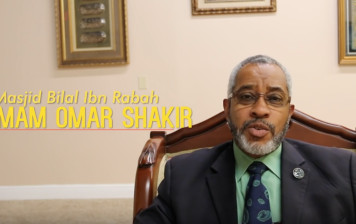
Mustafa Gurbuz
In the past decade, a plethora of reforms have been focused on the recognition of Kurdish identity in Turkey. Turkey’s bid for European Union membership empowered pro-Kurdish voices to challenge the state and provided both political and discursive opportunities for changes in institutional practices. Between 2001 and 2004, several EU harmonization packages were introduced, and they have significantly diminished the Turkish military’s dominant position in defining the Kurdish issue (see Figure 3).
In addition to reforms in cultural rights, the EU membership reforms have included the abolition of the state security courts, reforms to ensure civilian control over the National Security Council, the abolition of the death penalty, and most importantly, the eradication of the Emergency Rule Law in the Southeast. These initial reforms were supported by other significant steps, such as establishment of an official TV channel in Kurdish, TRT Şeş, and most recently, allowing private schools that conduct education in the mother tongue, i.e., Kurdish.
The Hizmet movement, also known as the Gulen movement, proactively supported the EU democratization packages as well as the overall framework of reformist attitudes toward the Kurdish issue. For example, as a part of the Abant Platform initiative, Hizmet volunteers organized two major conferences on the Kurdish issue to promote liberal and reformist perspectives, even preceding the “Kurdish Opening” of the Justice and Development Party (AKP) government. (1)
The conference in Erbil gathered more than 200 intellectuals of both Turkish and Kurdish origin. One of themes of the conference focused on Turkey’s long-standing fear of naming “Kurdistan.” The official discourse has long resisted the usage of “Kurdistan,” perceiving such naming as an existential threat to Turkey’s unity. Upon criticism by some Kurdish participants, Ali Bulac, a Zaman columnist, responded, “I am in the capital city of the Federation of the Kurdish Region in Iraq, and I’m not someone who minds stating this.” (2) The final declaration of the Abant Platform termed the region “Kurdistan Regional Government.” Only a week later, Turkey’s President Abdullah Gül paid a visit to Erbil and called the region “Kurdistan,” becoming the first official uttering the term. (3)
Similarly, the movement’s progressive approach regarding education in the Kurdish language preceded AKP reforms on the issue. A few months before constitutional amendments that endorsed establishment of Kurdish-instruction private schools, Fethullah Gülen gave an interview to Rudaw to declare his support for education in the mother tongue. Recognizing the Turkish government’s attempts to use such reforms in bargaining, he emphasized that such issues should not be an object of any political bargaining:
Human rights and freedoms are natural rights and no one has the authority to grant those rights to others as if they were favors… It is bizarre to discriminate based on ethnic differences, as being Turkish or Kurdish was not our choice. All human beings, including prophets, are equal since they were created by God as humans.
In the same interview, Fethullah Gülen further challenged the official Turkish discourse by stating that Turkey should not only grant Kurdish rights, but also take a leading role in defending and supporting all Kurds around the globe. Such a perspective still remains marginal among Turkish elites, as recently reflected in the AKP government’s much- criticized response to ISIS attacks on Iraqi Kurds as well as developments in Kobane. (4)
Fethullah Gülen’s statements were influential in shaping Hizmet’s discourse. When asked about Hizmet’s proposal for education in Kurdish, the chairman of the Journalist and Writers Foundation, a prominent Hizmet organization, pointed out that Gülen schools abroad offer instruction in four languages: the local language, the regional language, English, and Turkish. He suggested a similar policy in Turkey:
When we previously proposed a constitutional model, we put forward the proposal that no constitutional restriction should exist on teaching the Kurdish language as a local language. In this regard, it is essential that the curriculum at such schools be redesigned in line with the local people’s demands in the Southeast. (5)
As soon as the government introduced the new reform packages, a private Gülen school in Şırnak announced that they were institutionally ready for full education in Kurdish. (6) Fethullah Gülen called on state officials to take serious, swift steps to train Kurdish language teachers in order to back reforms institutionally. He added, “These steps should not be taken in an offensive manner, as if they are a gift granted to them.” (7) In a similar vein, as an indication of institutional adoption of pro-Kurdish cultural reforms, Hizmet volunteers were forerunners in establishing a private Kurdish TV channel, Dunya TV, as soon as the law passed in 2011.
Hizmet is well-known for organizing the annual Turkish Language Olympiads. Recently, Hizmet participants set up International Language and Culture Fests that put Kurdish and Arabic on equal footing with Turkish. At these events, Kurdish Hizmet activists from Gülen schools in Iraqi Kurdistan share their experiences with activists in Diyarbakır and Batman. In Iraqi Kurdistan, education in Kurdish, Arabic, Turkish, and English is a signature feature of Hizmet schools that serve students from Kurdish, Turkmen, and Arab backgrounds. Hizmet volunteers established the first school in Erbil (Hewler) in 1994, at a time when Iraq was in turmoil after the Gulf War and neither Iraq nor Turkey recognized an autonomous Kurdish region. Teachers faced a number of difficulties, including public skepticism about whether they were working for Turkish intelligence (MIT) and skepticism from Turkish military side about a possible fundamentalist Islamist agenda. (8) Until 2001, despite an increase in the number of schools and overall expenses, there was no school fee in these facilities. (9)

Figure 4. A flyer in Kurdish for an International Language and Culture Fest, organized by Kurdish Hizmet volunteers in the city of Batman. Photo by the author, Batman, (June 2013).
Hizmet initiatives were soon welcomed in the region. Currently, 17 private schools and a university, Ishik University, are affiliated with the movement. Radio Dewran, broadcasting in three languages (Kurdish, Arabic, and Turkish), is also run by Hizmet volunteers. Last year, the Kurdish Regional Government turned down then Prime Minister Recep Tayyip Erdogan’s request to close Hizmet schools, claiming that the schools offer high-quality education and the country’s elite send their children to these institutions. (10)
Criticisms
Critics find the Hizmet movement’s perspective on the Kurdish issue assimilationist. A leading expert, for example, points out that students attending Hizmet schools do not learn “Kurdish language, culture, history or politics, but rather risk being assimilated to a Turkish ethnic identity.” (11) But it is sometime forgotten that Gülen schools in Kurdish- populated cities are no different from other domestic Gülen schools: They all follow the same curriculum as public schools in Turkey, which has been influenced by secular nationalism.
For most Hizmet volunteers, educating Kurdish youth and providing civic channels for economic development are seen as panacea for the root causes of ethnic tension. Pro- Kurdish nationalist organizations find this perspective problematic, and see it as reminiscent of the Turkish state’s traditional underestimation of the significance of ethnic recognition.
The best examples of Hizmet discourse on Kurds are found in popular TV series in the movement’s media outlets. Among them, Tek Turkiye, One Turkey, was the most influential. One Turkey tells the story of a young, idealistic doctor, Tarık, who travels to the Southeast from Istanbul. Planning to make a short trip, Tarık aims to help local people who are suffering from the war between the Turkish state and PKK rebels. Tarık’s trip turns into a long journey when he learns that he was born in the village that he visited in the Southeast, so he is a Kurd, not a Turk. Although One Turkey does not mention the Gülen movement, Tarık’s persona clearly represents a Hizmet activist in the region. Tarık is an observant Muslim Kurd who has a high level of education. His original Kurdish identity functions as a representation of the bona fide Kurdish-ness of Hizmet volunteers. Through Tarık’s emphasis on his Islamic identity, recognition of his Kurdish-ness, unyielding defense of the land of Turkey against PKK guerillas, and community service as a doctor (and then local governor in later episodes), viewers get a concrete message: Separatism is not a solution for the problems in the region; instead, investing in the education of youth and Turkish-Kurdish unity around an Islamic identity could prepare a better future.
The most striking feature of One Turkey is its constant reminders of the deep state. The series depicts some powerful, ill-intentioned figures who employ covert operatives and are involved in provocative secret operations to incite hatred among local Kurds against the state. Their forum, called Karanlık Kurul (the Dark Committee), often collaborates with Kurdish guerilla leaders (representing the PKK), radical Islamic groups (representing Hizbullah), and high- level Turkish army officers who specialize in counterterrorism (representing Gendarmerie Intelligence and Anti- Terror Struggle). Thus, the show narrates how leaders of the PKK and Hizbullah collaborate with the deep state for their selfish interests and sell out the cause of Kurdish people’s well-being. Series like One Turkey have drawn much criticism due to their Turkish nationalist nature. A prominent figure in Samanyolu TV told me that they are now trying to avoid “touching upon” the issue in any of their TV series, yet they suffer from continuous criticism even from Hizmet circles. (12) In fact, Hizmet-affiliated media experiences serious difficulties in speaking to both its Turkish and Kurdish constituencies. The Kurdish issue is potentially a divisive issue, not only for the country, but also within the movement itself.
One major challenge stems from strong support for the Hizmet movement among Turkish nationalists. The movement recruited a large number of youngsters from Turkish nationalist parties such as MHP after the 1980s. Although these recruits were transformed by the movement and became more global in perspective, some form of nationalism has always been in place. This reality was reinforced by Turkey’s increasing integration with the global neoliberalist system, which has revived a heavy nationalist tone in Turkish politics, including secular nationalism (ulusalcilik) and religious nationalism (neo-Ottomanism). (13) As they are frequently portrayed as “pro-American” and “pro-Israel,” Hizmet participants often finds themselves in need of highlighting their patriotism. In One Turkey and later series such as Sefkattepe, the very definition of the state remains a symbol of unity among its Turkish and Kurdish constituents; whereas the definition of the deep state refers to a dark relationship between some elements within the state and radical elements in society. Pro-Kurdish intellectuals criticize this narrative as an attempt to purify the Turkish nation-state. The 86th episode is remarkably illuminating. A young Kurdish girl tells a remorseful story to a gentle school teacher who was also previously a rebel in the mountains:
I made a lot of mistakes. I rebelled against my people and my state. But I now realize that the state is not only about those who do bad things to us. I supposed that they were the state. In fact, it turned out that they were some bandits who infiltrated the state. The real state, indeed, has been you and us.
The girl’s account highlights the main idea in the One Turkey series: many Kurds who were ignorant about the deep state and its activities previously condemned the Turkish state; now it is time to realize that a bunch of criminals were acting in the name of the state.
For the Hizmet movement media, the challenge of having constituencies from diverse backgrounds is serious. In my fieldwork, for example, I observed Turkish Hizmet participants who spoke highly of the One Turkey drama series, whereas Kurdish participants were critical of the show. Feeling enlightened about the Kurdish issue, a Turkish activist asked Ismet Bey, a prominent Kurdish Hizmet member who was delivering a public lecture, in a curious tone: “Don’t they [Kurds] watch One Turkey to realize what is going on behind the scenes? It should be nominated for the Oscars.” Although a Kurdish audience would find such a question orientalist and disturbing, his tone revealed more expression of his sympathy for Kurds. Through One Turkey, he recognized that some Kurds were “forced” to join the PKK because of outrageous attacks by the deep state during the martial law era.
As the Hizmet movement increasingly develops a multi-faceted identity with diverse participants, issues around ethnicity will remain a challenge. Having political dimensions, the Kurdish issue is more challenging for Hizmet. As one participant noted critically, “Our movement has become Russian in Russia and black in Africa; and yet, it could not achieve becoming Kurdish in Kurdistan.” (14) When we consider the fact that globalization makes Hizmet participants less nationalist in tone, (15) the domestic politicization of the issue appears to be the main reason for such resistance.
Notes:
(1) The meetings took place in Abant (Turkey) and in Erbil (Iraqi Kurdistan) in 2008 and 2009, respectively. Abant Platforms are annual intellectual meetings that gather the nation’s most prominent minds with sharply different ideological backgrounds. For an in-depth analysis of the meetings, see Etga Ugur, “Organizing Civil Society: The Gülen Movement’s Abant Platform,” in The Muslim World and Politics in Transition: Creative Contributions of the Gülen Movement, edited by Greg Barton, Paul Weller, and Ihsan Yilmaz (London: Bloomsbury, 2013) pp. 47-64.
(2) Mustafa Demir, “Evolution in Discourse: Turkey and the KRG,” Turkish Review (2012) vol. 2, no: 5, p. 95.
(3) Although Gül later denied using the term “Kurdistan,” upon heavy criticism, he added: “What shall I say? We do not refuse to say Macedonia because Greece refuses to do so.” See Ibid, p. 95.
(4) Rudaw also highlighted this point by using the following headline for the interview: “Dive Tirkiye Bibe Parezvana Mafen Kurdan Li Seranseri Dinyaye,” [Turkey must be an advocate for Kurds’ rights around the world] Rudaw, June 30, 2013 http://rudaw.net/kurmanci/interview/30062013
(5) “Will Gülen Movement Schools Offer Kurdish Medium Education?” Hizmet Movement News Portal, Oct 7, 2013, http://hizmetnews.com/6025/will-Gülen-movement-schools-offer-kurdish-medium- education/#.VMf8T_7F-o-
(6) “Ilk Hamle Gülen’den,” Milliyet, Oct 3, 2013, http://www.milliyet.com.tr/ilk-hamle-Gülen- den/siyaset/detay/1772104/default.htm . See, also, “Hizmet School Ready to Pioneer Education in Kurdish,” Today’s Zaman, Oct 3, 2013, http://www.todayszaman.com/national_hizmet-school-ready- to-pioneer-education-in-kurdish_328007.html
(7) “Hocaefendi: Bir Kisi Duymadim ki Ciksin Bu Okullar Zararlidir Desin” Zaman, March 20, 2014. http://www.zaman.com.tr/gundem_hocaefendi-bir-kisi-duymadim-ki-ciksin-bu-okullar-zararlidir- desin_2206014.html
(8) Rusen Cakir, “Gülen Cemaati 19 Yildir Irak Kurdistan’ina Hizmet Goturuyor,” Vatan Jan 23, 2013. http://www.gazetevatan.com/rusen-cakir-508450-yazar-yazisi-Gülen-cemaati-19-yildir-irak-kurdistani- na-hizmet-goturuyor/ For an English translation of Cakir’s interview with Talip Buyuk, who coordinates Hizmet initiatives in the region, see http://Gülenmovement.com/news/191-Gülen- movement-participants-have-been-serving-in-iraq-kurdistan-for-19-years
(9) Harun Akyol, “An Alternative Approach to Preventing Ethnic Conflict: The Role of the Gülen Schools in Strengthening the Delicate Relations between Turkey and the Iraqi Kurds with Particular Reference to the ‘Kirkuk Crisis.’” Conference Proceedings, Washington, DC, Nov 14, 2008 http://en.fGülen.com/conference-papers/Gülen-conference-in-washington-dc/3126-an-alternative- approach-to-preventing-ethnic-conflict
(10) “Ankara Forces Arbil to Close Turkish Schools in KRG” Today’s Zaman, March 11, 2014. http://www.todayszaman.com/diplomacy_ankara-forces-arbil-to-close-turkish-schools-in- krg_341826.html
(11) David Romano, “When the Enemy of My Enemy Turn Outs to Be…Also My Enemy,” Rudaw Feb 6, 2014. http://rudaw.net/english/opinion/06022014
(12) See, for example, Istanbul Enstitusu, Hizmet Gonulluleri Perspektifinden Hizmet Medyasinda Kurt Sorununun Gorunumu. Istanbul: Istanbul Enstitusu Yayinlari, 2014.
(13) On the revival of secular nationalism, see Esra Ozyurek, Nostalgia for the Modern: State Secularism and Everyday Politics in Turkey, Durham and London: Duke University Press, 2006. For Muslim nationalism, see Jenny White, Muslim Nationalism and the New Turks, Princeton, NJ: Princeton University Press, 2012.
(14) Istanbul Enstitusu, p. 14.
(15) Recent studies, for example, indicate that stress over Turkish-ness is less visible among young, second generation Hizmet participants in France and Germany. See Sumeyye Ulu-Sametoglu, “European Turks in between Local and Transnational Islamic Networks: The Hizmet Movement as a Translocal Actor in the Religiosity of Turks in France and Germany,” in The State as an Actor in Religion Policy: Policy Cycle and Governance Perspectives on Institutionalized Religion edited by Maria G. Martino (New York: Springer, 2015) pp. 133-53.
Source:
Turkey’s Kurdish Question and the Hizmet Movement. Rethink Paper 22, March 2015. Rethink Institute, Washington DC. Click here to download the full paper.
Related Articles

Accept everyone for who they are and show respect
How sad it is that after all these that we have been through, once again we have become the slaves of our desires and primitive selves. Evil feelings…

Hizmet is not a terror group, they embrace the entire human family
I'm saddened to hear that the Hizmet Movement here is being categorized as a terror group. To classify them as terrorists in any form is a great misrepresentation.…

Justice and the Beloved Community in Fethullah Gulen’s Thought
Gulen never separates love of God from living a moral life. Sufism isn’t just for an elite; it’s for everyone. Gulen believes that Sufism offers a vision of…


